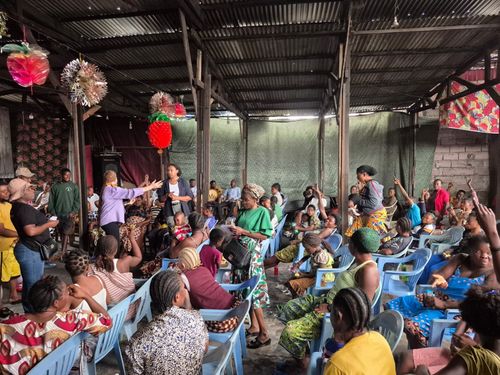Stepped Care for Better Mental Health in Refugees

Project overview
Tests a stepped care model that allocates limited mental health resources to people affected by adversity and who require tailored mental health assistance.
Project solution
This project offers [specific solution or intervention] to tackle [challenge]. By implementing [strategies, tools, or innovations], the project aims to achieve [desired outcomes]. The approach is designed to [specific actions or methods] to bring about meaningful change in [community, region, or issue area].
Expected outcomes
This project aims to achieve [specific outcomes], such as [measurable results, improvements, or changes]. The expected impact includes [benefits to the target community, advancements in research or innovation, or long-term effects]. By the end of the project, we anticipate [specific changes or milestones] that will contribute to [broader goals or objectives].
Principal Investigator: Richard Bryant, University of New South Wales
Purpose
People in low-and-middle-income countries are at greater risk of common mental disorders, such as anxiety and depression. These countries typically lack mental health resources to assist people in need, and so brief lay person delivered services are commonly used. Although scalable psychosocial programs are effective for most people, they are limited because many people do not respond to programs, and agencies cannot predict who will be responsive. It is not cost-effective to provide more intensive programs to all people with common psychological disorders.
This study tests how a stepped care program may provide scalable programs to all people who require assistance, and then a offer much-needed program to those who do not benefit from initial intervention. This framework tests a cost-effective model of care that addresses the psychological needs of most people, as well as those with persistent mental disorders in humanitarian crises.
Expected Outcomes
It is expected that people with psychological distress who receive the stepped care program will display reduced anxiety and depression, and greater functioning relative to those who receive a single program. Specifically, this project is expected to show that by providing an additional more intensive, but still lay provider delivered, intervention for those who do not initially respond to a more generic psychosocial intervention, we can address the persistent mental disorders in an affordable manner by focusing more intensive programs on people who are non-responsive to first-line low-cost programs. These programs already exist and are available via the World Health Organization, however this project will produce a freely available template for how these programs can be integrated into local systems in ways that are cost-effective in resource-poor settings.
Project delivery & updates
Stay up to date with the latest developments from this project. Here, you will find details on what has been delivered, resources created, and regular updates as the project progresses. Access key documents, reports, and other materials to see how the project is making an impact.







